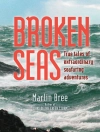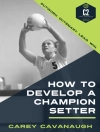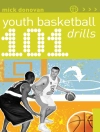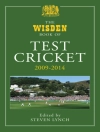10, 000 hours? Learning styles? Coaches need to be cruel to be kind? Coaches should have previous elite competing experience? Parental involvement? Coaching female athletes is different?
Sport Coaching is complex and multi-faceted, and the role of the coach involves an unlimited number of theories and responsibilities. With this, comes a plethora of information on how to coach effectively and what we should be aware of as coaches.
Sometimes this information can become ’muddied’ and misconstrued. This book aims to unpick some of the key ideas, practices and messages within the domain and determine what credible research has actually concluded.
Myths of Sport Coaching is written by leading international researchers and practitioners and offers invaluable theoretical and practical guidance, debunking some common myths and misconceptions in an engaging and informative way.
The book supports an evidence-based practice approach and is an important companion for all those learning through sport and hopefully to reflect critically on the way you operate within your sport.
Each chapter contains a QR code to a video from the chapter author and this connection introduces the wonderful people we share this book with and their passion.
We hope this book helps you demystify some of the challenges you are facing on your journey.
Innehållsförteckning
1.Myths about Deliberate Practice
Edward Coughlan
2. The Science of Fun in Sport: Fact over Fiction
Amanda J. Visek & Anna Feiler
3. Communities of Practice: Common Misconceptions
Diane M. Culver, Tiago Duarte, and Don Vinson
4.A ’Fundamental’ Myth of Movement with a ’Functional’ Solution
James R Rudd, Jonathan D Foulkes, Mark O’Sullivan, and Carl T. Woods
5.The Stepping Stone?: Challenging the Myth that Women’s Sport
is Less Significant than Men’s Sport
Ali Bowes
6.Myths about Learning Styles in Sport Coach Education
Anna Stodter
7.Common Misconceptions about Parental Involvement in Youth Sport: Insights for coaches
Sam Elliott
8.Coaching is a 24 hour a day job
Brendan Cropley, Sheldon Hanton, & Lee Baldock
9.10, 000 hours and Early Specialization: Short term Gains or Long
term Pain?
Jody Mc Gowan, Simon Walters, and Chris Whatman
10.They Really Are ’a Different Kettle of Fish’: Myths Surrounding
the ’Effective Coaching’ of the Female Athlete
Luke Jones & Zoë Avner
11.Common Sport and Exercise nutrition Myths Encountered by Coaches and Athletes
Liz Mahon, Claire Blennerhassett, & Andy Sparks
12.Reflection is ’Wholly Beneficial’ for Coaches
Lauren Downham & Chris Cushion
13.Do you have to walk it to talk it? The significance of an elite athletic career in becoming a high performance coach in men’s football and rugby union
Alexander D. Blackett
14.’Questioning in Coaching Leads to Learning’: A Deconstruction of Questioning
Mark Partington
15.The Evolving Role of the Sport Psychologist and the Myth that
their Sole Role is to ’Fix’ Athletes
Laura Swettenham, Kristin Mc Ginty-Minister, & Stewart Bicker
16.Is Goal Setting an Effective Way to Improve Athletic Performance?
Laura C. Healy and Desmond Mc Ewan
17.Clutch Plays, Clutch Performances, and Clutch Performers: Separating Myth from Reality
Matthew J. Schweickle & Patricia C. Jackman
18.Caring Coaching: Examining the notion of ’cruel to be kind’ and other caring myths
Colum Cronin
19.Psychological Resilience in High Performance Athletes: Elucidating Some Common Myths and Misconceptions
Jolan Kegelaers & Mustafa Sarkar
20.The Coach-Athlete Relationship: What Are we Missing from the Sociocultural Context
Christopher R. D. Wagstaff
Om författaren
Jenny Coe is Head of Performance and Wellbeing with West Ham United Women’s Team. She also works across a number of Olympic sports as a high performance coach developer and performance analyst. Her athletic career spanned 15 years of international basketball, and she also has a wealth of experience coaching internationally. On the back of that, she is a founding member of the company Impact the Game that aims to support athletes and coaches in all areas of performance. She is an advocate for mental wealth and women in sport, and she continues to support and influence change in these areas.












